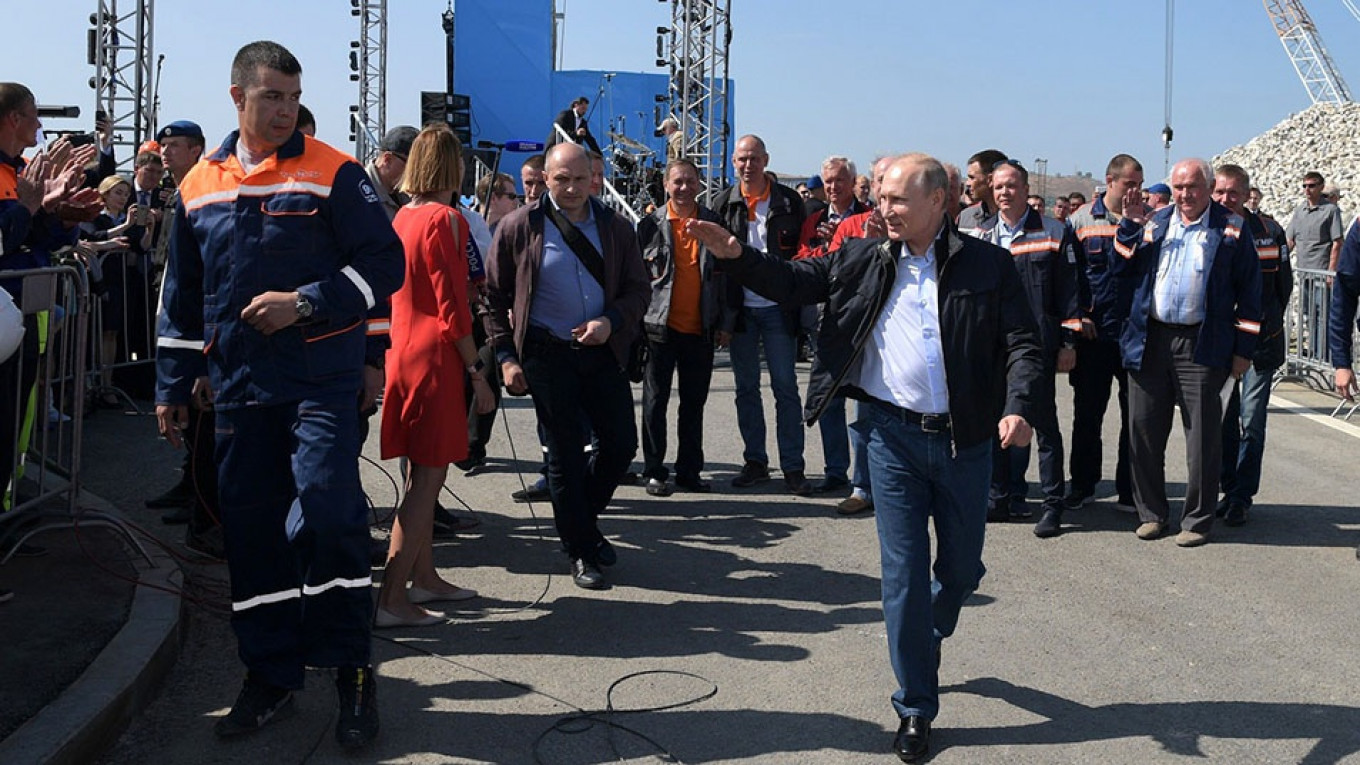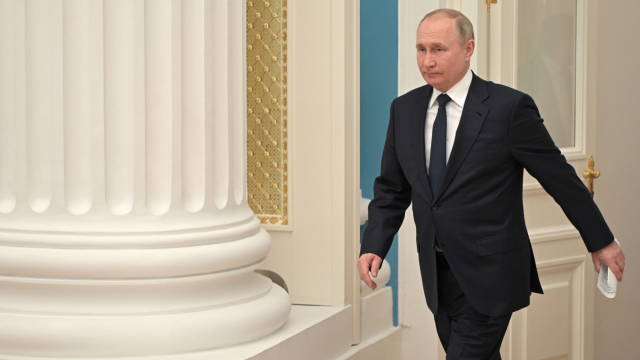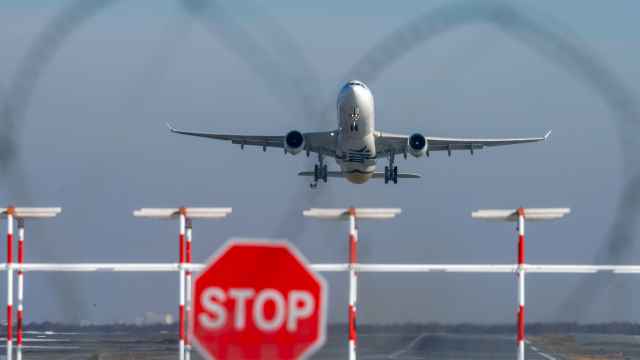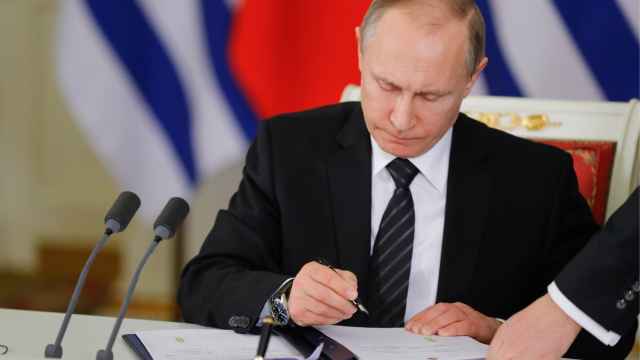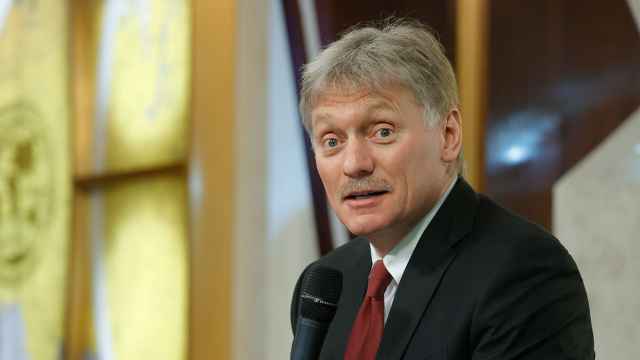Ever since Russian President Vladimir Putin seized Crimea from Ukraine in 2014, he seemingly could do no wrong as far as most Russians were concerned. Now, however, his Teflon coating appears to be wearing thinner. This raises two important questions: What do Russians want and will they act to get it?
Political scientist Mikhail Dmitriev and sociologist Sergey Belanovsky are two of the best people to ask these questions. They’ve been studying Russian mass consciousness for signs of a protest mood since the beginning of this decade, and they predicted the middle-class protests of 2011 and 2012, which were set off by a rigged parliamentary election. Though some of their later work could be described as unnecessarily alarmist, their analysis of the Russian mood is more nuanced than that offered by Russia’s few remaining professional pollsters. Dmitriev and Belanovsky get most of their insights from focus groups, which they hold in Moscow and in the Vladimir region, an economically depressed backwater in central Russia.
Dmitriev, a former deputy economics minister, is a member of the Civil Initiatives Committee formed by Alexei Kudrin, Putin’s former finance minister and now head of the Audit Chamber, the Russian budget accountability office. The committee recently published a report by Dmitriev, Belanovsky and psychologist Anastasia Nikolskaya, which describes important changes in the way Russians see the Putin regime and their contract with the state. The changes the researchers see echo the anti-establishment sentiments that have risen in Europe and the U.S. in recent years.
Dmitriev and collaborators see an overwhelming desire for change, even if it’s risky and untested, which has superseded the long-dominant preference for stability. In the focus groups, the researchers played a game with their subjects, asking them to imagine Russia’s path as a muddy, potholed road. The road goes past a meadow that no one has ever tried crossing; it might be a swamp but there’s also a chance that it could be a useful shortcut. A full 70 percent of focus-group participants said they’d try crossing the meadow.
At the same time, Russians, who welcomed strongman Putin after a short fling with pluralism and democracy in the 1990s, no longer hunger for a strong hand. “The model based on strong leadership gradually turned from a remote dream into a daily routine,” the researchers wrote, “so its original halo of attractiveness began weakening.” Now, according to them, only 7 percent of focus group participants want a strong leader, while 80 percent have shifted to demanding justice rather than order.
The justice Russians appear to want has less to do with the Western concept of equality before the law than with economic inequality. Dmitriev’s respondents demand free health care and education, curbs on immigration and a low retirement age, contrary to Putin’s recent decision to raise it. They are angry at the elite, which they feel has hoarded the nation’s wealth.
The demand for that kind of redistributive justice would be easy to interpret as a swing to the left, but at the same time, an overwhelming majority of respondents told Dmitriev and his collaborators that they’ve stopped relying on the state to improve their lives. This libertarian self-reliance is a consequence of alienation from the elite. Russians would like the state to fight inequality, but since it doesn’t, they’re resigned to taking care of themselves.
The growing self-reliance undermines trust in government propaganda. “The established model of communicating with the population through centralized mass media is beginning to sputter,” the report’s authors wrote.
Despite years of intensive propaganda, the idea of Russia as a great power has only taken hold to a limited extent. In the focus groups, only 20 percent of the respondents agreed that Russia is a great power; 49 percent believe it’s somewhere between a great nation and a backward one. To these people, military might and a proud history don’t mean much without a prosperous, modern, socially oriented economy.
Putin’s post-Crimea propaganda offensive initially stunned Russians into agreement. But then, Dmitriev, Belanovsky and Nikolskaya found, discontent with Putin's domestic policies, which had been on the rise in 2013, gradually came back.
This is a dismal situation for Putin, but only potentially. Dmitriev and collaborators point out that in the absence of credible opposition leaders, protest activity is fragmented — for example, rallies against festering garbage dumps in the Moscow region earlier this year didn’t lead to bigger nationwide protests. “Actions become local and situational, often competing among themselves, which prevents protest initiatives from achieving mass success,” the researchers wrote. They also pointed to a low public interest in bringing down the regime. “Aggressive speech toward authority wasn’t heard in any of the groups,” the report says.
Dmitriev and Belanovsky are moderates, so-called “system liberals” who believe in reforming Russia from above. To them, the political status quo is not an obstacle to positive economic change. The resumption of popular discontent after several years of post-Crimea euphoria troubles them because it reminds them of Trumpism or the quest for simple solutions offered by European anti-immigrant parties. So the absence of charismatic populist leaders who could direct the muttering masses is something of a relief to them.
On the other hand, that lack of leaders is a direct result of Putin’s successful campaign of political suppression, which, as recent history shows, cannot be effective forever in Russia. If Dmitriev and Belanovsky are right and Russians have given up on their leaders and those leaders’ ideological constructs, that’s a lot like the situation that preceded the implosion of the Soviet repressive state in the late 1980s. Leaders with the courage and the clout to challenge the totalitarian machine emerged eventually — and the enforcers found themselves either powerless or reluctant to move against them.
Leonid Bershidsky is a Bloomberg Opinion columnist covering European politics and business. He was the founding editor of the Russian business daily Vedomosti and founded the opinion website Slon.ru. The views expressed in opinion pieces do not necessarily reflect the editorial position of The Moscow Times.
A Message from The Moscow Times:
Dear readers,
We are facing unprecedented challenges. Russia's Prosecutor General's Office has designated The Moscow Times as an "undesirable" organization, criminalizing our work and putting our staff at risk of prosecution. This follows our earlier unjust labeling as a "foreign agent."
These actions are direct attempts to silence independent journalism in Russia. The authorities claim our work "discredits the decisions of the Russian leadership." We see things differently: we strive to provide accurate, unbiased reporting on Russia.
We, the journalists of The Moscow Times, refuse to be silenced. But to continue our work, we need your help.
Your support, no matter how small, makes a world of difference. If you can, please support us monthly starting from just $2. It's quick to set up, and every contribution makes a significant impact.
By supporting The Moscow Times, you're defending open, independent journalism in the face of repression. Thank you for standing with us.
Remind me later.



